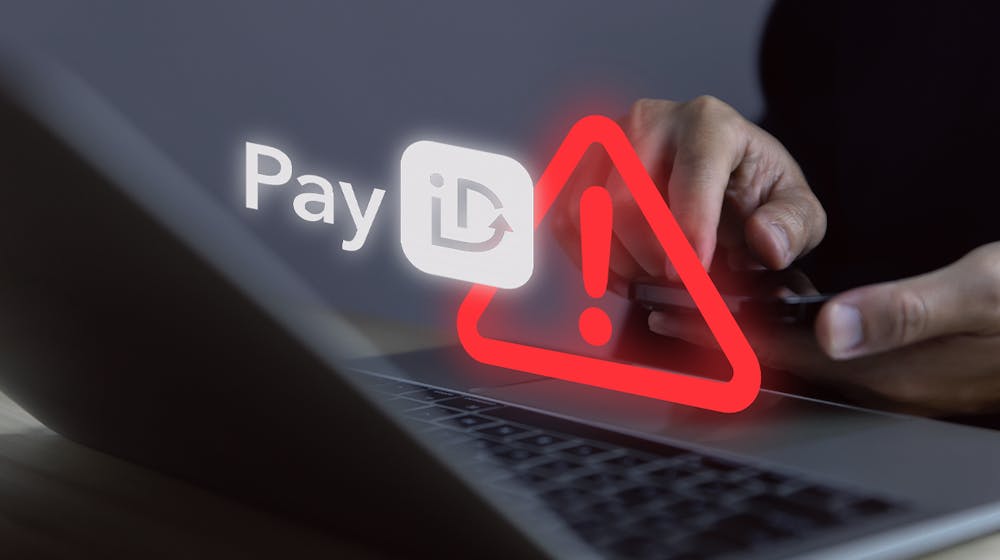Unveiling the Dangers of PayID Scams at Online Casinos: Protecting Your Winnings


PayID has become a popular mode of payment for many Australian online gamblers. It offers seamless transactions straight from your phone, and it’s easy to deposit and withdraw funds.
Plus, you don’t need to share bank account details.
However, like any online payment method, staying vigilant and protecting yourself is important. PayID scams in Australia are on the rise. Let’s have a look at what this means and how to keep your details safe when gambling online.
What is PayID?
PayID is a legitimate and relatively new payment method launched in February 2018 to help overcome incorrect payments and reduce fraud.
It now has around 10 million registered users. It’s a free service that uses your mobile phone number, email address or ABN with the security of online banking systems. Using this information, the bank will verify you and link your bank account to a unique identifier.
One of the benefits of using PayID is that it allows you to see the payer information before you confirm the transaction. So you’ll know that your money is going to the right person or business account before you authorise payment.
There is no need to remember bank account details or BSB numbers, which can lead to mistakes when inputting numbers.
Understanding PayID Scams
According to Scamwatch, Australians lost $260,000 to PayID impersonation scams last year.
National Australia Bank (NAB) also reported that their total scam reports relating to PayID increased by 38% from the previous year.
A PayID scam is when someone tries to use PayID to get money from you. While PayID was introduced to help reduce fraud by knowing exactly who you’re sending your money to, unfortunately, some scammers use the payment method to target unsuspecting Australians.
Common PayID Scam
A new PayID scam is an impersonation scam. This PayID scam targets people who sell their second-hand items online. It’s being seen on sites like Facebook marketplace, where scammers exploit PayID to get you to send them money.
The scammer contacts you to buy your item and encourages payment via PayID. They then claim there is an issue when transferring money because you don’t have a PayID business account. So, the transaction couldn’t be completed.
They’ll send a fake email that appears to look like it’s from PayID, claiming to have sent additional funds to upgrade the account. They’ll then request a refund from you, hoping you’ll make a transfer to their account.
Other Types of Financial Scams
Other types of financial scams include identity theft, where hackers use data breaches to take over transaction accounts, giving them access to make unauthorised payments or withdrawals.
Financial fraud is also prevalent in Australia.
This is when cybercriminals use phishing scam attacks to trick people into revealing their personal information, including your bank or financial institution details. This is usually in the form of an email, instant message or text message.
The scammer masquerades as a trusted entity, like PayID or your bank, to encourage you to open the message.
Protecting Yourself
One of the biggest red flags when using PayID is if someone asks you for money to upgrade your PayID account.
PayID is free, and there are never any charges for using this payment method. PayID also does not contact customers via texts, emails, or phone calls, so any contact that says it is “from PayID” is fake.
Here are some other steps you can take if you’re using online trading sites, Facebook marketplace or other online marketplaces:
- Enable multi-factor authentication where possible to give you additional security.
- Always use strong passwords and have a different password for each payment method.
- Never send any money first to receive a payment via PayID.
- Regularly check your statements to spot any unauthorised transactions and notify your bank immediately if you notice anything unusual.
- Try to avoid using public Wi-Fi networks to access your PayID account.
- Keep your devices up to date with the latest software.
- Stay informed on cyber scams by reading the news regularly.
- If you’re selling goods online, don’t send money; consider asking for cash payments instead of electronic payment channels.
Transfer Money to Online Casinos Safely
When making deposits to online casinos, here are some additional things to look out for to keep your personal information safe:
- Verify the online casino or website is trusted and legitimate before providing personal information.
- Only use a licensed and regulated casino that has a valid gambling licence from a regulatory body such as the UK Gambling Commission.
- Check online reviews before signing up for an online casino site to ensure it has a good reputation.
- Use a site that has a secure website and uses SSL encryption.
- Jump online and look for endorsements from unbiased gambling platforms.
- When confirming payments, make sure to check the PayID details to ensure the money is being sent to the right online casino.
- Check the online casino can accept payment from PayID and other reputable payment methods.
Using PayID at Online Casinos
There are many licensed and reputable casinos that accept PayID as a secure payment method.
It offers a safe and secure way to transfer funds without having your personal information compromised.
While opportunistic scammers are using it to trick people into transferring their money, the platform still offers additional authentication and encryption and maintains high levels of confidentiality for secure payments.
So even if someone got your PayID details, they can’t access your bank account details.

Olivia is an experienced journalist passionate about keeping our readers up to date with the latest in casino and iGaming news.
Read more about the author









